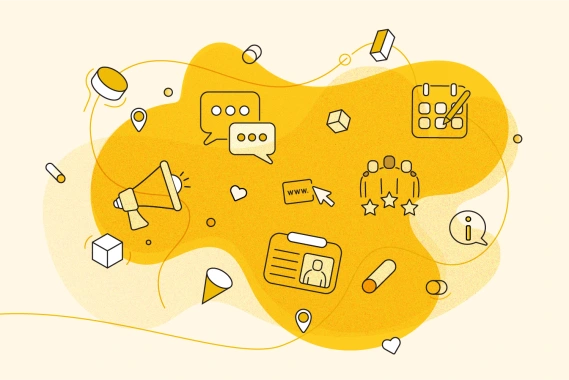If you’ve tried to manage your business out of a spreadsheet, you’ve likely realized that it just can’t cut it as your business grows. It becomes nearly impossible to keep track of which leads you should call today, which customer is due to purchase again soon, and who is late on a payment.
Thankfully, Customer Relationship Management (CRM) software can handle the complexities of tracking lead and customer actions, communications, documents, and much more. A CRM for small business replaces the patchwork of spreadsheets, apps and databases, streamlining daily business operations.
Let’s explore these key benefits of CRM for businesses of all sizes and industries:
- Organization and efficiency
- Flawless follow-up with leads and clients
- Personalized communications
- More sales opportunities through data insights
- An improved customer experience
Advantages of CRM software
The benefits of using a CRM are felt across your team, from marketing to sales to customer support. Of course, your leads and customers will benefit too.
Organization and efficiency
A small business CRM consolidates all lead and customer details in a central place, accessible to your entire team, whether at their desks or on the go. The information you need to close a sale or help a customer with an issue is at your fingertips — no more piecing together info from multiple systems.
Flawless follow-up
When your CRM is combined with sales and marketing automation (like Keap), sending the right message to the right person at the right time becomes a reality.
You no longer have to copy and paste introductory emails to new leads or put reminders on your calendar to follow up with clients. Lead and customer actions trigger automated email and text message follow-ups at key touch points in the customer journey.
Personalized communications
When a sales rep has visibility to all the actions a lead has taken, they can personalize their conversations and encourage the appropriate next step in converting the lead to a customer.
With CRM and sales and marketing automation software, emails and text messages can be personalized automatically based on customers’ interests, past purchases, time elapsed since last purchase, etc. Personalized, relevant messaging is critical for building long-lasting relationships with leads and clients.
More sales opportunities through data insights
A CRM can track lead conversion trends and customer purchasing patterns, providing insights into what’s working and what needs improvement.
When you understand where leads are dropping off, you can make adjustments to improve conversion. When you’ve identified common purchase combinations, you can create packages or bundles to increase sales.
An improved customer experience
An often-unsung benefit of a CRM is a better experience for your customers. Having all lead and client information in one system makes the handoff between sales and customer support seamless.
A CRM helps you build relationships with your clients through timely, personalized communications. And strong relationships lead to customer retention, higher customer lifetime value, and referrals.
Other unique ways CRM can help in your industry
Here are a few examples of how a CRM can streamline processes and grow sales, from professional services to ecommerce industries.
Sales
Lead scoring is a huge benefit of a CRM as it highlights how hot or cold a lead is and prioritizes outreach efforts for a sales team. Based on custom rules, points are added to a lead record for key actions taken, like clicking a link or attending a webinar. Leads with the highest scores are pushed into sales rep pipelines for personalized communication.
Nonprofits
A nonprofit can streamline its volunteer program with a CRM. Each volunteer’s interests and availability can be added to their record in the CRM. As opportunities arise, the non-profit can reach out to the segment of volunteers most likely to respond.
A great example of a nonprofit utilizing Keap’s CRM and sales and marketing automation to the fullest is Wrap Ukraine with Quilts. In under a year, they sent 25.7 tons of quilts to war torn areas, thanks to donations from all 50 U.S. states.
Insurance
Insurance agents often utilize a CRM to streamline policy renewals. By tracking policy renewal dates in their CRM, they can send automated renewal reminders to clients, preventing lapses in coverage and increasing revenue.
Real Estate
Realtors can capture lead information from an interest form directly into their CRM, tagging each record as a buyer or seller and a shorter or longer timeline. Leads looking to buy or sell soon would enter a fast-track communication sequence. Those with a longer time horizon would enter a nurture sequence, with helpful information specific to their buyer or seller needs.
Ecommerce
Ecommerce and retail businesses can send a follow-up email or text message after purchase, asking their customers to rate their experience. By storing each customer’s rating in their CRM, they can automatically create tasks for customer support to follow up with dissatisfied customers and send requests for reviews to highly satisfied customers.
See for yourself how Keap’s small business CRM works
Ready to see how a CRM would help streamline and grow your business? Try Keap’s CRM and sales and marketing automation software now in a 14-day free trial.


